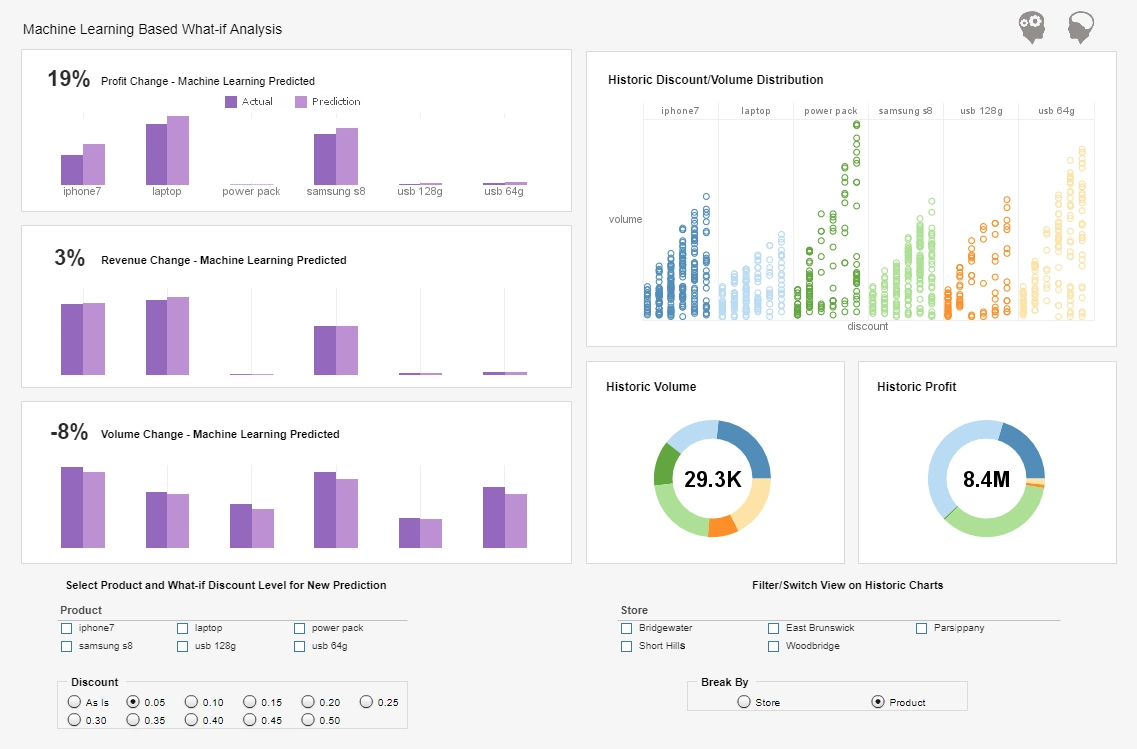InetSoft Webinar: Business Intelligence Agility Helps Enterprises
This is the continuation of the transcript of a Webinar hosted by InetSoft on the topic of "Why You Need Data Discovery Software." The speaker is Abhishek Gupta, product manager at InetSoft.
Business intelligence agility helps enterprises who need to move quickly and adapt to changing markets and also be the first to market with new products and services. Intelligence throughout the organization, organizations want to be intelligent enterprises to put the name in the magazine they use to write. You want to use information be predictive and proactive rather than reactive.
Get ahead of events, and a lot of this is about getting the ability to access and analyze information out to users who really have not had that, in lines of business and in front line, in geographically distributed divisions in organizations.
So learning from the data continuously improve decisions and process and then effectiveness as we’re get into really business optimization, improving supply, looking for ways to reduce cost, improve productivity, get performance management going in organizations. So that they can sustain the focus on key objectives and be successful and achieving those objectives.
So just look at agility. I think this is a really key point when we look at the deployment of data discovery tools and unified information access. Some of the business things that I think are concerning, particularly those in lines of business, is the short lifespan of success in this age of the internet, the age of the web.
Steady Stream of Insights
Organizations really need a steady stream of insights, and where are they going to get those insights? Well I think in many organizations they’re going to come from the lines of businesses. They are going to come from users, managers who are in touch with customers who are in supply chains, managing inventory rather than the central corporate headquarters.
So they need a steady stream of ideas, they need collaboration with different parts of the organization. And so far business intelligence architectures have not really well served that purpose. Actionable intelligence means going beyond canned reports and historical analyses. Certainly you know parameterized reports and historical analyses are not going to go away. They’re very important, but lot of users need to get beyond that, they need to be able to look at drill downs into the data. They need more analysis of their own and not be dependent on IT for delivering these kinds of more detailed reports or even just the capabilities in new applications that may take months to develop.
This is really key for improving operational decisions across the organization. They need flexibility versus control. Certainly IT governance is very important to organizations as we look at regulatory compliance issues and other industry and internal policy. So governance is very important, and I think is really part of the balance of extending more analytic and data access capabilities out to users.
But nonetheless if everything, as I mentioned before, gets too locked down, the feet of an organization are blocked in concrete. So it’s important to support user flexibility and mobility, and a way to do that is certainly giving them the right tools to work with. And then I think the three words about agile BI are key: rapid, agile and iterative. Really users don’t know what your second question is going to be until you have the answer to the first one.
They really need to iterate. They need to move through the data and ask many questions, questions that create more questions. Again this is something that traditional BI systems haven’t really been designed to do. They support very effectively the power users, business analysts, data analysts, but not the nontechnical line of business users. And those are the kind of users are really who we’re going to be talking about today.


